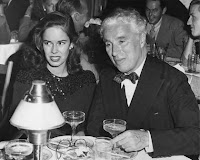A Lubitsch rom-com written (at least partially) by Billy Wilder, how can it go wrong? Greta Garbo, who underwhelmed in Grand Hotel, sparkles. First as the comically humorless Russian agent then as love-lorn and conflicted. She and the Grand Duchess' lover (soon to be former) cross paths without knowing who they are. He takes a fancy to her and she finds him amusing enough. Then things get complicated.
Hey, Bela Lugosi is here! Briefly. He has a quick and unimportant scene late in the film telling Ninotchka to check in with the same three operatives again, this time in Constantinople (not Istanbul). Was he begging for bit parts already?
Wonderfully written, delightfully performed, Ninotchka is a lot of fun. It does seem to lose track and go heavy handed on the Soviet social commentary, but that doesn't spoil a great viewing experience. AMRU 4.
"The last mass trials were a great success. There are going to be fewer but better Russians."




